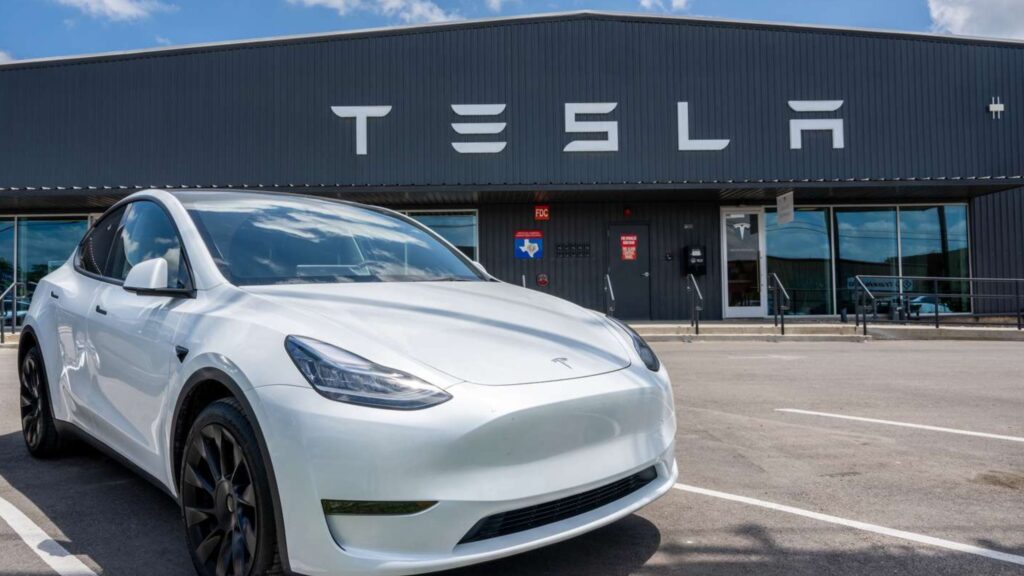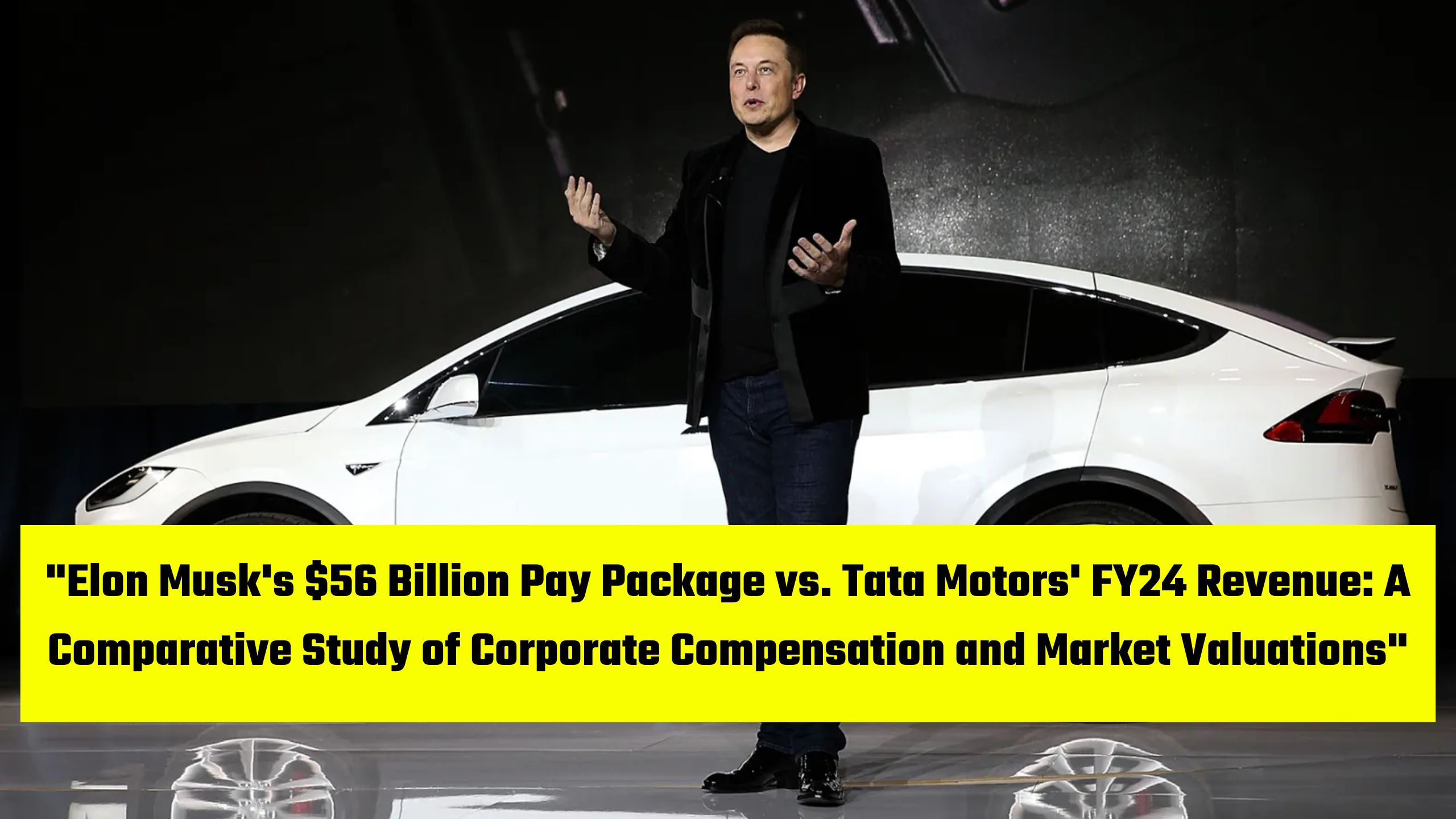Elon Musk, the enigmatic CEO of Tesla, has recently made headlines with a staggering $56 billion pay package approved by Tesla shareholders.
This astronomical figure not only underscores Musk’s pivotal role in the company but also places his compensation into perspective when compared to significant benchmarks in the global and Indian corporate landscapes.
Elon Musk’s $56 Billion Pay Package
Understanding the Context
Elon Musk, known for his visionary leadership and transformative impact on industries ranging from electric vehicles to space exploration, has been a focal point of both admiration and scrutiny.
His compensation package, valued at $56 billion, represents one of the largest in corporate history. This substantial figure is a testament to Tesla’s growth trajectory under Musk’s leadership and the confidence of its shareholders in his ability to drive the company forward.
Comparison with Tata Motors’ Revenue

Tata Motors, a prominent Indian automotive manufacturer, reported a total revenue of approximately $52.44 billion for the fiscal year 2024.
This revenue figure, which translates to approximately 4.38 lakh crore Indian rupees, serves as a benchmark to understand the scale of Musk’s compensation.
The fact that Musk’s salary exceeds Tata Motors’ entire annual revenue highlights the magnitude of his pay package and Tesla’s market valuation.
Impact on Indian Market Valuations
Musk’s $56 billion compensation also surpasses the market valuations of several prominent Indian companies.
For instance, Hindustan Petroleum Corporation Limited (HPCL) has a market valuation of approximately $52.09 billion, while the State Bank of India (SBI) stands at around $40.35 billion. Rajesh Exports, known for its dominance in the jewelry sector, has a market valuation of about $37.48 billion, and Tata Consultancy Services (TCS), India’s leading IT services company, holds a market valuation of approximately $29.04 billion.
The comparison underscores Musk’s financial influence, which surpasses that of these established entities in the Indian corporate landscape.
Analysis of Musk’s Compensation Package
Elon Musk’s $56 billion pay package is structured to align with Tesla’s ambitious growth targets and shareholder expectations.
The package is tied to performance metrics and milestones, reflecting Musk’s strategic vision and the company’s trajectory in the electric vehicle (EV) and renewable energy sectors.
This approach aims to incentivize Musk to achieve long-term sustainable growth while ensuring shareholder value.
Tesla’s Growth Trajectory

Tesla, under Musk’s leadership, has emerged as a trailblazer in the EV industry. The company’s innovative approach to electric vehicles, including advancements in battery technology and autonomous driving capabilities, has positioned it as a leader in sustainable transportation.
Tesla’s market valuation has soared in recent years, reflecting investor confidence in its ability to revolutionize the automotive industry and accelerate the global transition to clean energy.
Musk’s Role in Tesla’s Success
Elon Musk’s leadership style and entrepreneurial spirit have been instrumental in Tesla’s success story. Beyond his role as CEO, Musk is deeply involved in shaping Tesla’s product strategy, technological innovations, and strategic partnerships.
His hands-on approach and bold vision have propelled Tesla to new heights, challenging traditional automotive giants and setting new benchmarks for innovation and sustainability.
Comparative Analysis with Indian Corporate Giants
Comparing Musk’s compensation with the market valuations of Indian companies provides insight into the global scale of Tesla and Musk’s influence.
While Indian companies like Tata Motors, HPCL, SBI, Rajesh Exports, and TCS are leaders in their respective sectors within the Indian market, Musk’s compensation underscores Tesla’s prominence in the global context.
It also highlights the disparity in market capitalization between Tesla and these established Indian entities.
Implications for Global Corporate Governance
The size of Elon Musk’s pay package raises broader questions about corporate governance, executive compensation, and shareholder activism.
While Tesla shareholders have endorsed the package, critics argue that such astronomical figures could set a precedent for excessive executive compensation in the corporate world.
Advocates, however, contend that Musk’s compensation reflects his unique role in driving Tesla’s innovation and market leadership.
Conclusion
Elon Musk’s $56 billion pay package represents a significant milestone in the intersection of corporate leadership, executive compensation, and global market dynamics.
The comparison with Tata Motors’ revenue and the market valuations of Indian companies underscores Musk’s financial influence and Tesla’s stature in the global automotive and technology sectors.
As Musk continues to chart Tesla’s course in sustainable transportation and renewable energy, his compensation package serves as a reflection of both the company’s ambitious goals and the evolving landscape of corporate governance worldwide.







